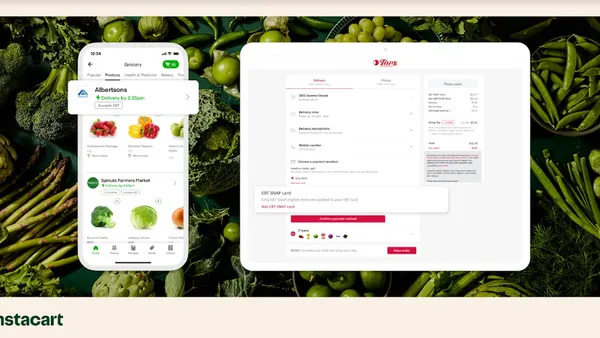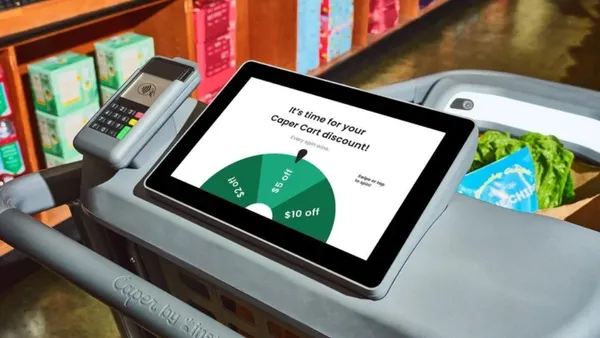Year-end physical inventory counts for grocers are critical for tax purposes and to get an accurate snapshot of inventory levels, but they can be costly, time-consuming and labor-intensive. To make the most of your efforts, you need an effective strategy along with tools that can help you complete the count as quickly and accurately as possible.
1. Start planning early
Year-end inventory counts typically coincide with the busy holiday season, and to ensure everything goes smoothly, you should start planning early. Let these tips guide the way.
-
Make sure you have adequate staff, and if necessary, plan to bring in temp workers or hire extra help.
-
Decide which team members are doing the count early to avoid conflicts with time-off requests during the holidays.
-
Schedule the count around holiday crowds so shoppers aren’t decimating your inventory as you’re counting.
-
Break the job into sections and create a map detailing which order you’re going to count various aisles and departments.
-
Ensure you have the tools you need to complete the count.
Depending on the volume of your inventory, you should start planning anywhere from one to three months in advance.
Pro tip
Try doing a “dry run” practice count during the planning phase. This will help you get a better idea of how many staff members you’ll need to get the job done without hiring more help.
2. Tidy up your inventory
If you miss counting items, your inventory ends up artificially low. At the same time, overlooking inventory also inflates your shrinkage on paper and fails to give you an accurate overview of which items have been selling.
To avoid missing items, devote time to cleaning up your inventory before you start the count and ask yourself these questions:
-
Are there items in break rooms, receiving areas, or other places that are likely to be missed in the count?
-
Do we have certain items in two or more locations and are they all noted on the map?
-
Have we accounted for end caps and special displays?
Pro tip
Not only does this task help you get organized for the new year, it can also be a great time to evaluate and update your store’s planogram if needed.
3. Invest in the right tools
To streamline the physical count, arm your team with solutions that quickly scan your items and upload accurate information to your records in real-time. While it can be tempting to send out your team with consumer-grade devices and software, they slow down the process, impede accuracy and have high rates of failure.
Coupled with CATAPULT’s hand-held terminal (HHT) software module, industry-leading hardware devices empower employees to effectively execute inventory counts over the store’s Wi-Fi. CATAPULT’s HHT software communicates directly to the back office in real time and allows users to receive and handle inventory, update prices and inventory records, apply discounts and change shelf labels from anywhere in the store.
4. Set up two-person teams
Two-person teams can focus on the granular counts more quickly. If you can break up counting tasks into small teams of two:
-
Your staff members are less likely to feel overwhelmed.
-
It makes the task seem less intimidating and more manageable.
-
Pairing two people together makes them accountable to each other, improving quality control for the inventory process.
-
When you pair a more experienced team member with a new team member, you combine experience with a new set of eyes, giving you a more effective level of oversight into the inventory process.
Remind teams to look out for items being stocked in multiple places. Back stock and end caps are sometimes overlooked.
Pro tip
Pairing a more-experienced associate with a less-experienced one may be beneficial. While one member of these two-man teams may be less knowledgeable about the process this time around, they’ll be able to learn from their more-experienced teammate.
By the end of the count, they’ll be acquainted with the process for next year and can help lead. This can also be an opportunity for a less-experienced associate to become more familiar with the products you carry.
5. Schedule the count strategically
Ideally, you need to pause operations while you perform the year-end count, but you don’t want to sacrifice your bottom line for your count. Many stores do their inventory in the middle of the night and if you take this route, remember to plan well in advance so that you have ample staff members available.
If you have to close the store to do your count, communicate the changed hours clearly to your customers over multiple channels including updating Google business listings, posting on social media channels, sending e-blasts and hanging signage well in advance.
Final Takeaway: Having the right tools makes it all easier
A comprehensive technology can help you stay competitive and help with each of the best practices listed above. The right tech and hardware stack can help you master these best practices, down to a science.
A retailer whose store is already fully connected from the POS to inventory:
-
Will know the best possible time to schedule a physical count.
-
Can digitally track and categorize stock; clean up and organization should be a breeze.
-
Can easily reconcile inventory changes that happen during a physical count.
Physical inventory counts ensure that the rest of your store systems are accurate and in proper order. When you’ve already got a unified store system that gives you a real-time 360-view of inventory on-hand, the physical count becomes a step to affirm and assure your 360-view, not provide it.
Are you ready to bring all of these best practices together?
CATAPULT® provides a single hub for managing your inventory in real time, from anywhere in the world. Contact us today to get started!










